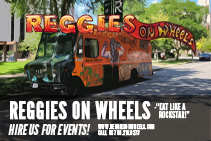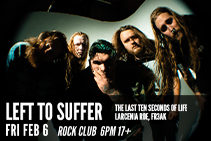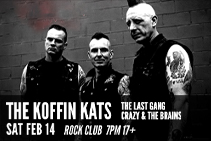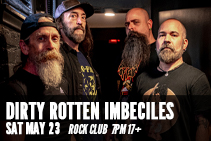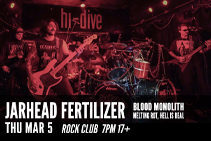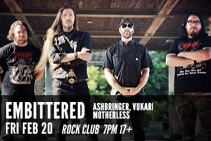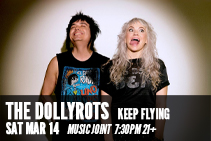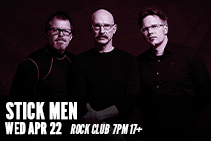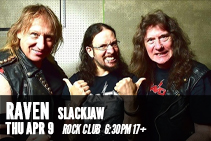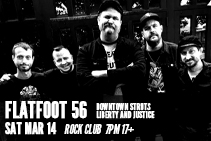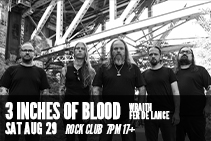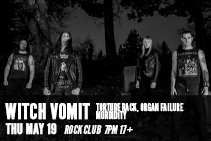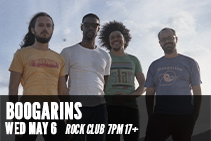
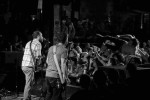
ALL GET OUT
The road is family—the disciplining father, the nurturing mother; exist as shadows at each stop to any band betrothed to relentless touring without a safety net. With miles behind and miles ahead, life in a van will change a band; and All Get Out are no exception. From the wasted days stranded, to the desolate moments of doubt, to the nights where immortality stretches through bended notes, two-hundred and fifty shows a year has shaped the band known for their attitude and angst on display through high woven volume into a refined framework fusing gambled moments and glossy catchiness.
“We sound like we’ve been on tour for three years. We’ve been smoking and driving, and we don’t smell too good,” Nathan Hussey, singer and guitarist, defining the coming of age sound on their full-length debut, The Season.
In 2007 the foursome from Charleston, SC found themselves with two EPs, stumbling into regular weekend tours of the South. Soon three days became a month and a month became six. A play-anywhere-for-anyone ethic kept All Get Out on tour for three years. A loyal fan base that has been equally enamored and entertained with their big ditch, bigger valley sound has grown with them, anticipating when the band would enter the studio again.
Acting as a centerpiece to an album with running themes, the title track for The Season puts all the moments that have shaped the members square into the light. “While touring is fun and a dream, there were times where all of us wanted a wall to punch and cry and wished we were home, or had a home.” Hussey explains. Writing in the moment, truly unfiltered, each verse displays specific moments of disarray the band found themselves in: broken friendships, fights, and empty wallets. In the end The Season is about moving past it all so you can keep on driving.
Just as All Get Out accidentally ended up spending the formidable part of their ‘20s counting mile markers, so did The Season unintentionally transform itself into a pop record when the band began tracking with producer Matt Malpass (Lydia, Copeland). Still visceral and soul-bearing as before, The Season stretches All Get Out into the frequencies beyond reactionary abrasions.
Rather than discard older material that dated back to 2007, when a much younger All Get Out wore relationship dirt all over each melody, the songs were kept for nostalgia, giving everyone a chance to hear how the band grew. Songs like My Friends, Son of Mine, Don’t Let Me Go and Girl Gun display an innocence, but the rest of the album shows a band aware that the horizon holds more than can be comprehended. Even Hussey has taken himself out as the protagonist of each song, changing his voice into a character that meanders in, saying “hello”, as the much bigger story unfolds.
“It’s a book on the history of our band,” Hussey says of album. “Now we start another Season.
HARRISON HUDSON
“Jack come back/bring back with you the America even outsiders loved/ the America of open highways/the America of boundless forests/the America of sunsets by the river-pier/ an America generous of spirit.” – Jack Kerouac, ‘Gentleness’
The American rock n’ roll of the ‘50s and ‘60s ran on raw, unfiltered emotion, and was driven by ardent soul. The muscle cars, steel mechanics, and never ending highways were the image, but the spirit was inherit in the far reaching melodies and layered vocals — the ideal at the heart of American Thunder, Harrison Hudson’s third full-length album. Behind the languishing spacious guitars and the overall smooth vibe there is Hudson himself, sharing the best moments of the American rock radio that lavished his childhood.
Formed in 2005 in Atlanta, GA Harrison Hudson began as a songwriter backed by a band. In 2006 his debut Angel On One Side…And the Other On The Other displayed a dark shade, a monument of Hudson’s life at the time, but by 2008 Harrison Hudson had become a full band, a trio that found a new home in Nashville, TN releasing the no-frills, full volume, Blood, Sweat, and Sweat. As soon as recording was finished Hudson began writing again, 70 songs that would be sliced down to an integral 12 of pop hooks and rock twist free of overbearing romantic gestures, the shape of American Thunder.
In one aspect American Thunder can construed as one love story, one that goes bad as the girl just must leave, but that’s a stretch as even the hyperbole romantic gestures of the more light-hearted songs (Bookstore Girl, Indie Rock N Roll Queen) can’t take the sarcastic cynical voice that lies in the punch line of other tracks (Stay, Fire and Fizzle Part Two). This voice is the grounding point of the album, the reality of relationships brought to the front.
“It’s the kind of thing where you see a beautiful girl and she’s definitely the answer,” Hudson describes the voice. “When she turns out to be just another human being like you, you resent her for it because she’s is not perfect like you expected–and no one is.”
To keep the spirit of the gritty early days of Rock N’ Roll without ending up with a throwback record the band entered a modern studio with Kevin Dailey and Micah Tawlks behind the boards. To jump into an old rock studio of AM radio glory in Nashville would have been easy, but the end album would have been a plastic design. The old idea lost in a chase to recreate.
American Thunder accomplishes the goal. The spirit of the old days of Rock N’ Roll radio have been captured and embraced, not re-manufactured.
DEATH ON TWO WHEELS
Death On Two Wheels makes rock ’n’ roll dangerous again, with slurry-blurry lyrics, half-cocked dreamspeak of portents and regret, and a formidable guitar attack that recalls the nasty duels Allen Collins waged with Gary Rossington before Skynyrd’s final plane ride. Following the same bumpy trail as Kings of Leon, this Atlanta foursome seems to be in pursuit of darker mysteries on the band’s self-released debut. And unlike the Kings, they have more range and a greater reverence for ’70s classic rock, not to mention the eccentric bite of vocalist Trae Vedder. Could he really have been christened with such a propitious rock name? No matter, he has the same grit and red clay in his voice that Chris Robinson had before he got famous and complacent—but there’s something even more disturbing in Vedder’s delivery that almost veers into goth. Especially on a song like “Bobby Havis,” which shudders with psychedelic anxiety. It’s a song so haunting it could’ve been penned in Rose Hill Cemetery next to Duane Allman’s headstone.
– Jaan Uhelszki, Paste Magazine
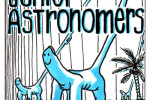
JUNIOR ASTRONOMERS
Junior Astronomers. A consistency in disorder breathes into existence a quintet bound to the loud and impulsive. Gritty and jangled on some occasions, then mangled and diverting in others. The only thing planned is the outburst itself. A hypnotic trance is created through guitars painted heavy and a rhythm section bound for movement, but beneath the distortions and muddled screams Junior Astronomers seek to achieve more than just reactions from onlookers; the band itself tries to document the human experience. “Music needs to sound like human beings, like it’s alive,” frontman Terrence Richard declares. “A lot of people want to make sad shit all the time–that’s one part of life but it’s not all life. There’s fun, there’s happiness, there’s sadness.” On stage the mess of humanity is embraced through a livid live show—devoid of controlled manipulation each night’s set stumbles onto new devices. Passion bleeds over lofty construction making sure the songs themselves are the frame. The rest is unhinged and never over thought. “If something is forced it feels like a job,” the band echoes. Continually on the move since forming in 2007, with only two EPs to their name, Junior Astronomers have toured and shared stages with the likes of Harvard, The Weeks, Dignan, Color Revolt, Des Ark, and Polvo. Poised to not take a break in the near future the North Carolina natives bring with them a promise, there is an elemental energy that lies in-between art and craft.

